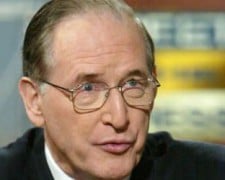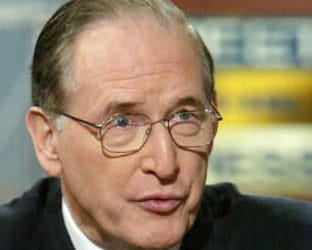 Sen. Jay Rockefeller (D-WV) wants to learn about the use of JSAs and SSAs by local television companies, and has asked the Government Accounting Office for a study in the number of such arrangements and their impact with an eye toward determining if they are a tool to execute an end-run around FCC ownership caps.
Sen. Jay Rockefeller (D-WV) wants to learn about the use of JSAs and SSAs by local television companies, and has asked the Government Accounting Office for a study in the number of such arrangements and their impact with an eye toward determining if they are a tool to execute an end-run around FCC ownership caps.
Rockefeller is concerned about one owner having effective operational control over two or more stations, and using that in-market power as a bargaining chip when it’s time to negotiation retransmission consent fees with MVPDs, eventually driving up the MVPD subscription prices of consumers.
NAB believes the local agreements untlimately benefit viewers. NAB’s Dennis Wharton told RBR-TVBR, “There are numerous examples of JSAs and SSAs that have resulted in higher quality news and public affairs programming. Media ownership rules that preserve localism and permit broadcasters to remain competitive with pay TV companies ought to be encouraged.”
The American Cable Association believes otherwise. ACA’s Matt Polka stated, “ACA applauds Sen. Rockefeller for requesting a U.S. Government Accountability Office study on the impact of separately owned, same market broadcasters coordinating their activities. ACA welcomes a report that examines the widespread and increasing practice of separately owned broadcasters on the local level coordinating their sale of retransmission consent. This behavior increases broadcasters’ bargaining power over ACA Members in their negotiations and drives up the cost of carriage fees for millions of consumers.”
RBR-TVBR observation: There is one serious problem here: TBAs, JSAs and SSAs have generally been allowed by the FCC because they involve programming and sales and business administration, all areas over which the FCC generally has no authority. They are akin to using a network, a sales representative or a secretarial service. The FCC has allowed them all to exist and for the number of agreements to grow.
To suddenly pull the plug at this point will cause a major disruption in the flow of business for a lot of companies in a lot of markets.
We have been led to believe that a look at these arrangements is to be part of the quadrennial review, if it ever sees the light of day. All we can say is that any changes to the rules must be handled with extreme care – simply shutting them all down all of a sudden is not a viable option.
Broadcasters will make the case that they have in fact been beneficial, allowing weaker stations to thrive which on their own may be struggling or dark. Maybe that’s what GAO will discover.





